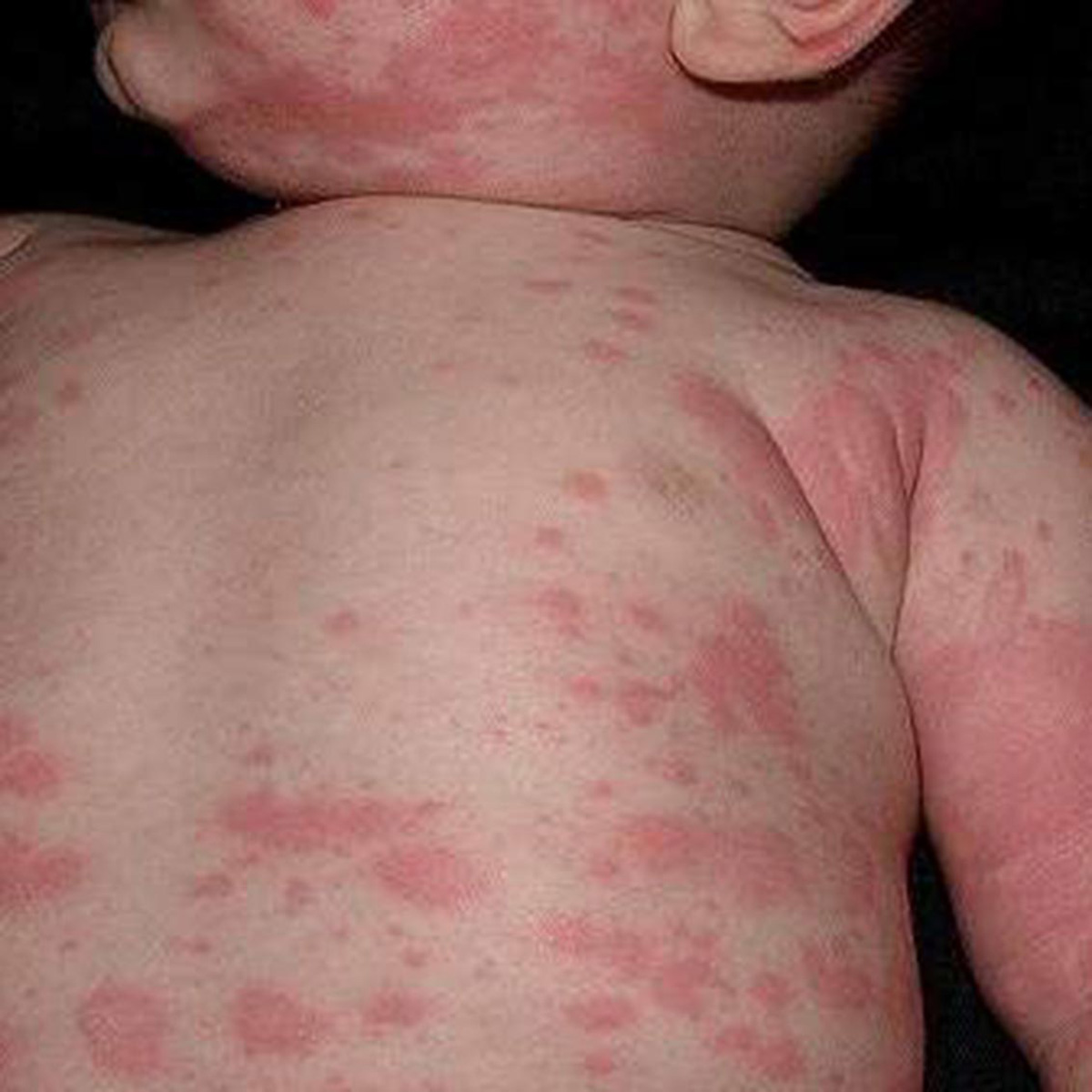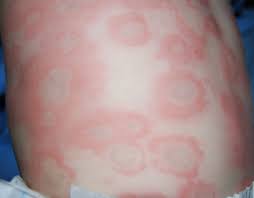URTICARIA (HIVES)
WHAT IS URTICARIA?
Urticaria is a condition of the skin in which very itchy lesions develop. These lesions are often referred to as hives. Their appearance is alike to a mosquito bite, with a raised paler central area and surrounding redness. The lesions of urticaria can be tiny or very large, affect a single part of the body or multiple areas and last minutes or hours.
Many people who develop urticaria also develop swelling of the deeper tissues. This is often uncomfortable and may take a few days to resolve. This swelling is known as angioedema and can be dangerous when it affects the airways.
Urticaria and angioedema usually resolve without leaving any marks or scars on the skin. Very painful lesions and changes in skin colour or scarring after lesions resolve are not ‘typical’ and should be assessed by your allergist.


WHAT CAUSES URTICARIA?
Urticaria can occur as part of an allergic reaction to allergens like foods, insect venom and medication. This type of urticaria occurs shortly after an exposure and resolves within 24 hours. We call this acute urticaria.
Urticaria also occurs in a more persistent form in response to physical stimuli like heat, cold or water exposure. We call this chronic inducible urticaria. Other individuals develop persistent urticaria without any identifiable trigger. This is chronic spontaneous urticaria.
Some people experience angioedema without urticaria. This may be a reaction to medications or a genetic illness. These individuals should urgently seek out healthcare as this is potentially life-threatening.
HOW IS URTICARIA TREATED?
Both the acute and chronic forms of urticaria require assessment and treatment to ensure the impact on quality of life is minimised and potentially dangerous scenarios are avoided. Certain investigations may be required but this is best decided by a practitioner experienced in managing urticaria, such as an allergist. Dietary restrictions should not be undertaken without the supervision of a healthcare practitioner.
Acute urticaria can be managed through allergen avoidance, whilst chronic urticaria usually requires daily medications and avoidance of exacerbating factors.
For further information and to download a patient leaflet please visit the Allergy Foundation of South Africa’s website
Copyright © Candice Royal
